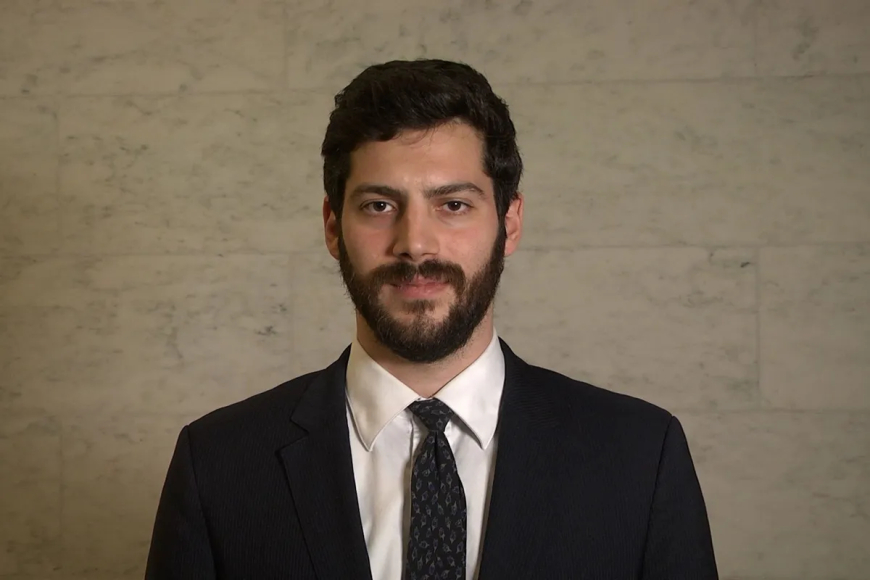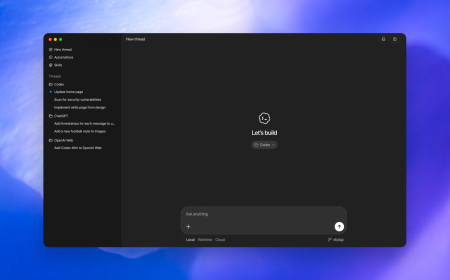a16z-backed super PAC is targeting Alex Bores, sponsor of New York’s AI safety bill — he says bring it on
A16z-backed super PAC takes aim at NY lawmaker Alex Bores for sponsoring the RAISE Act, a major AI safety bill setting guardrails for advanced AI systems.

A pro-AI political action committee backed by Andreessen Horowitz and OpenAI President Greg Brockman has made New York Assembly member Alex Bores — and his run for Congress — its first primary target.
The super PAC, called Leading the Future, launched in August with a commitment of over $100 million to support lawmakers who favour minimal or hands-off regulation of artificial intelligence. That also means going after politicians who advocate for guardrails on AI. The PAC is backed by several high-profile tech names, including Palantir co-founder and 8VC managing partner Joe Lonsdale, as well as Perplexity AI.
“I appreciate how straightforward they’re being about it,” Bores told journalists Monday evening at a workshop in Washington, D.C. “When they say, ‘Hey, we’re going to spend millions against Alex because he might regulate Big Tech and put basic guardrails on AI,’ I just forward that to my constituents.”
Bores, who is running to represent New York’s 12th Congressional District, says concerns around AI are escalating among residents — from rising utility bills caused by data centres, to climate issues, to chatbots affecting young people’s mental health, to fears about job displacement.
Bores is the lead sponsor of New York’s bipartisan RAISE Act, one of the country’s most significant state-level AI safety bills. The legislation requires major AI labs to maintain safety plans, follow those plans, and disclose high-risk safety incidents, including those involving malicious AI models or malicious actors stealing an AI model. The bill also bans companies from deploying models that pose unreasonable risks and imposes civil penalties of up to $30 million for violations. The bill is currently awaiting Gov. Kathy Hochul’s signature.
During the drafting process, Bores says he met repeatedly with major AI companies, including OpenAI and Anthropic. Some provisions — such as mandatory third-party audits — were ultimately removed after industry pushback. Even so, the final bill appears to have angered Silicon Valley.
Leaders of the PAC, Zac Moffatt and Josh Vlasto, told Politico they plan to launch a multibillion-dollar effort aimed at derailing Bores’ campaign.
In a statement to TechCrunch, they accused him of pushing “ideological and politically motivated legislation that would handcuff not only New York’s, but the entire country’s ability to lead on AI jobs and innovation.”
They argued that bills like the RAISE Act “threaten American competitiveness, limit economic growth, leave users exposed to foreign influence and manipulation, and undermine our national security.”
“The RAISE Act is a clear example of patchwork, uninformed, bureaucratic state laws that would slow American progress and allow China to win the global race for AI leadership,” they said, adding that the U.S. needs a single nationwide regulatory framework.
Many Silicon Valley figures have pushed aggressively to block states from passing AI rules altogether. Earlier this year, a measure to preempt state AI laws was quietly inserted into the federal budget bill, only to be removed later. Lawmakers, such as Sen. Ted Cruz, are now attempting to revive similar measures through other legislation.
Bores says he’s worried momentum could build behind efforts to shut down state AI policymaking — especially as Congress has yet to pass a central AI regulation. States, he argues, act like startups: nimble, fast-moving policy labs capable of testing solutions.
“The question should be, has Congress solved the problem?” he said. “If Congress solves the problem, then it can tell the states to get out of the way. But if they’re not going to pass a bill that actually addresses any of the problems — and then they say states can’t do anything — that just doesn’t make sense to me.”
Bores added that he is already working with lawmakers in other states to develop consistent standards, which could directly counter Silicon Valley’s “patchwork” argument. Policymakers should also ensure their efforts don’t duplicate the EU AI Act, he said.
Bores stressed that the goal is not to stifle progress. He said he has rejected bills that he believes would unintentionally harm innovation.
“Having basic rules of the road — literal or metaphorical — is actually a very pro-innovation stance if done well,” he said. “The AI that wins will be the AI people trust. And the idea that government has no role in establishing that trust is something people are increasingly rejecting.”
What's Your Reaction?
 Like
0
Like
0
 Dislike
0
Dislike
0
 Love
0
Love
0
 Funny
0
Funny
0
 Angry
0
Angry
0
 Sad
0
Sad
0
 Wow
0
Wow
0

















































